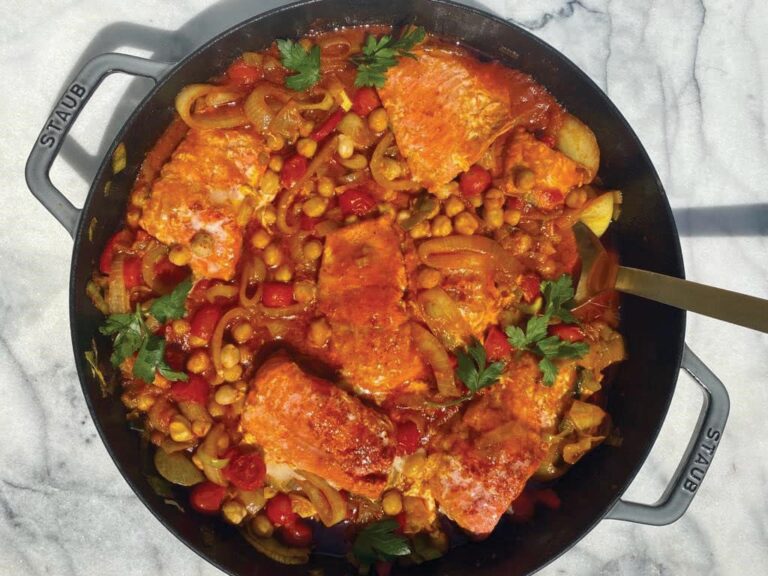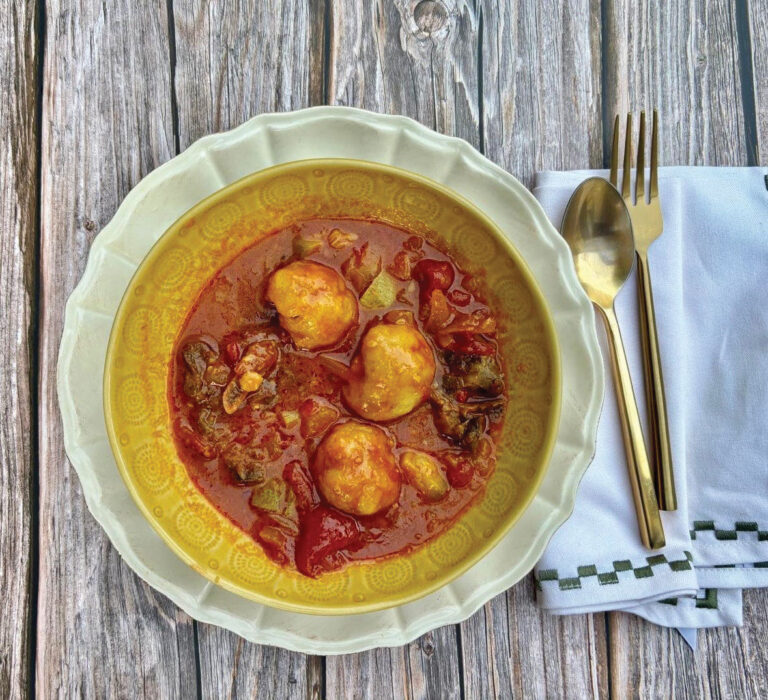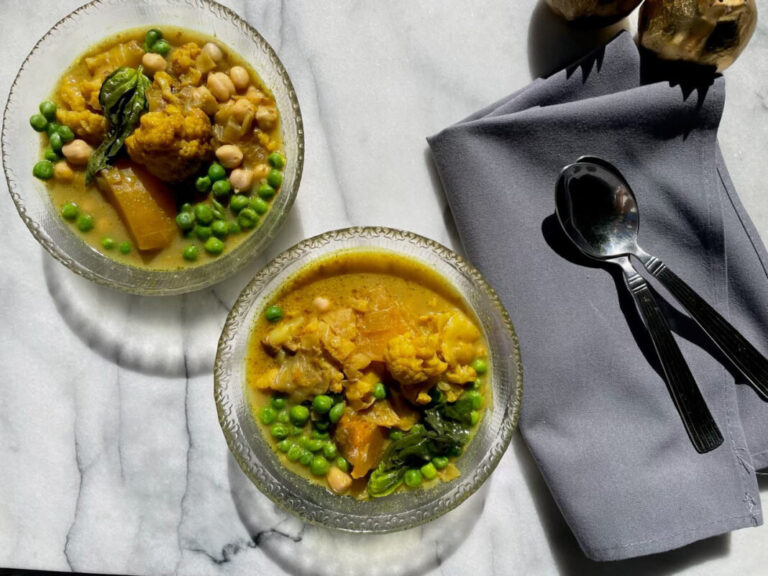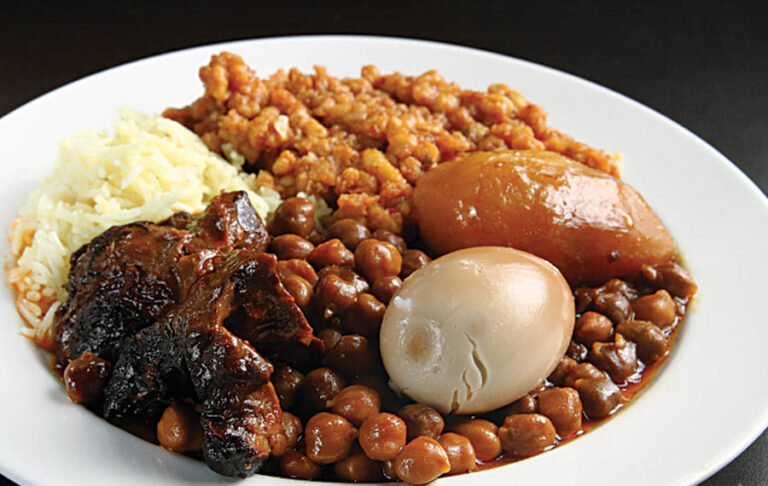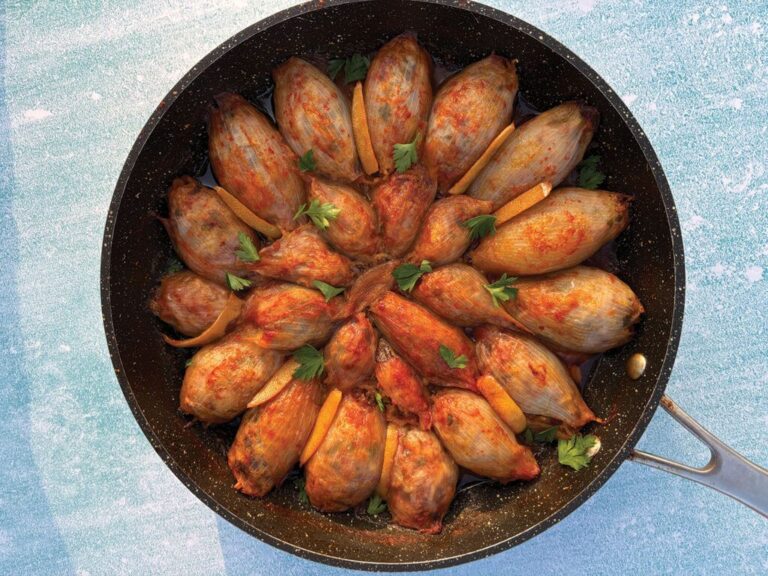A Flaky Pastry, A Rich History
A bureka is a bundle of joy usually filled with feta cheese softened with creamy mashed potatoes. It’s a must have in the Rhodesli kitchen.

Burekas are one of the most popular Jewish foods out there. When the Sephardic Jews from the lands of the Ottoman Empire — Istanbul, Izmir, the Balkans, Rhodes and Syria — settled in pre-state Israel, they brought their recipes for burekas with them. The flaky short crust dough of these burekas originated with the recipe for Spanish empanadas, that their ancestors adapted to the assorted cheesy, spinach, eggplant and meat burek pie fillings of the Ottoman kitchen.
The mass production of puff pastry and phyllo pastry made burekas an easy, inexpensive, and extremely popular bakery treat in Israel. Nowadays burekas made of puff pastry or phyllo pastry come with every variation of cheese, potato, mushroom, spinach, pizza and olive fillings and they are widely available in Israel, as well as many kosher restaurants and bakeries wherever Jews are found around the world. But the original recipe for shortcrust burekas still lives on.
Traditionally served as part of the Sabbath desayuno (Ladino for breakfast), these delicious cheese burekas are usually accompanied by Kalamata olives, kashkaval cheese and huevos haminados, eggs that have been boiled overnight with onion skins, oil and pepper to a achieve a golden-brown color and a wonderfully smoky, caramelized flavor.
For Rachel and I, no Shabbat or festival meal is complete without an Israeli salad. We love to use herby Italian parsley, fresh tomatoes, ruby red peppers, crisp green Persian cucumbers, and sweet and spicy red onion. We offer this updated recipe for an Israeli salad that includes the unexpected addition roasted eggplant and Israeli pickled cucumbers. The juxtaposition of fresh veggies with the wonderful creamy umami flavor of the eggplant and the briny crunch of the pickles is truly wonderful. This juicy, citrusy, flavorful salad serves as the perfect counterpart to the flaky, crumbly, cheesy burekas. This just might be the perfect Simchat Torah lunch menu for your table!
—Sharon
I think a part of the reason I fell in love with my husband Neil when we were first dating was the delicious, flaky, cheesy bureka that his mother Becky so lovingly fed me. Neil grew up in the warm, close-knit Rhodesli community and part of the language of love were the incredible pastries they made for Shabbat and holidays. A bureka is a bundle of joy usually filled with feta cheese softened with creamy mashed potatoes. It’s a must have in the Rhodesli kitchen. For special occasions and Jewish holidays you might find a different gomo (stuffing in Ladino and pronounced go’mu), like ground beef or sautéed eggplant.
The transmission of these recipes from generation to generation is a point of pride and a way of retaining heritage and history. A piece of home that Sephardic immigrants brought with them to America.
Of course, I was soon introduced to the entire line up of baked delicacies, including cheese boyos, spinach and cheese bulemas, crispy, salty reshas (ring crackers) and sweet biscochos (ring cookies). The transmission of these recipes from generation to generation is a point of pride and a way of retaining heritage and history. A piece of home that Sephardic immigrants brought with them to America.
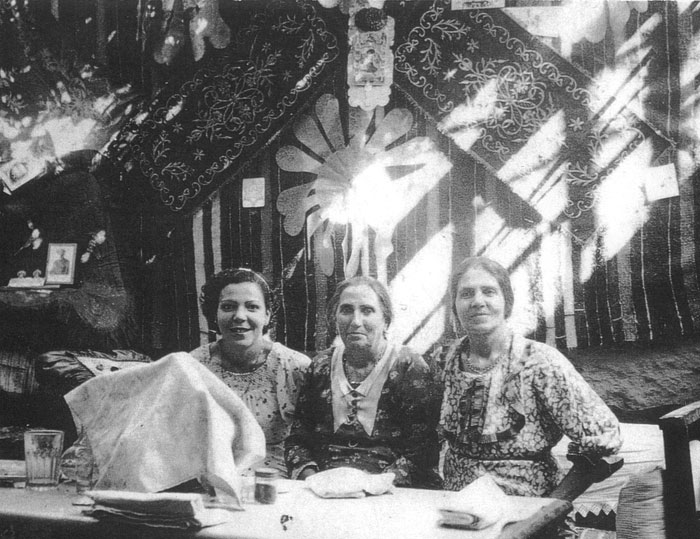
The first question asked when meeting a Sephardic Jew of Greek or Turkish background—does your family make burekas? Then the discussion starts—where is your family from? What type of burekas? What’s the shape? Do you use boiling water or ice water? Which filling is your favorite?
My mother in law taught me to make the dough with ice water and to shape the burekas into small, bite-size crescents. One of my favorite lunches to eat in the Sukkah (or really anytime) is to make a desayuno. These perfect appetizer size burekas are the star, surrounded by other Rhodesli treats, Shabbat eggs, cheeses, olives and fruits.
There is a beautiful Rhodesli community in Atlanta, Georgia that published the Congregation Or VeShalom Sisterhood cookbook in 1971. When I married Neil, my mother in law gifted me this book and it is among my most treasured possessions.
This cookbook is the Rhodesli bible and includes every recipe, including the famous and humble Bureka. Throughout the years there have been many editions and many additions, but all the essential recipes remain. (There are also a few retro recipes, like Jell-O mold, that will make you smile.)
This community is very serious and very proactive about preserving all the traditional recipes. On their website, there is a video showing the Sisterhood baking burekas over the years. Every Tuesday, members of the community volunteer to bake burekas at Congregation Or VeShalom. Called “Bureka Tuesdays,” this weekly baking session has endured for decades and has become a beloved tradition. Sometimes four generations of a family show up to make the dough and filling and then shape the burekas. By November, they will have baked and frozen over 10,000 burekas. Every year, these prized pastries are eagerly purchased at the annual Hanukkah Bazaar.
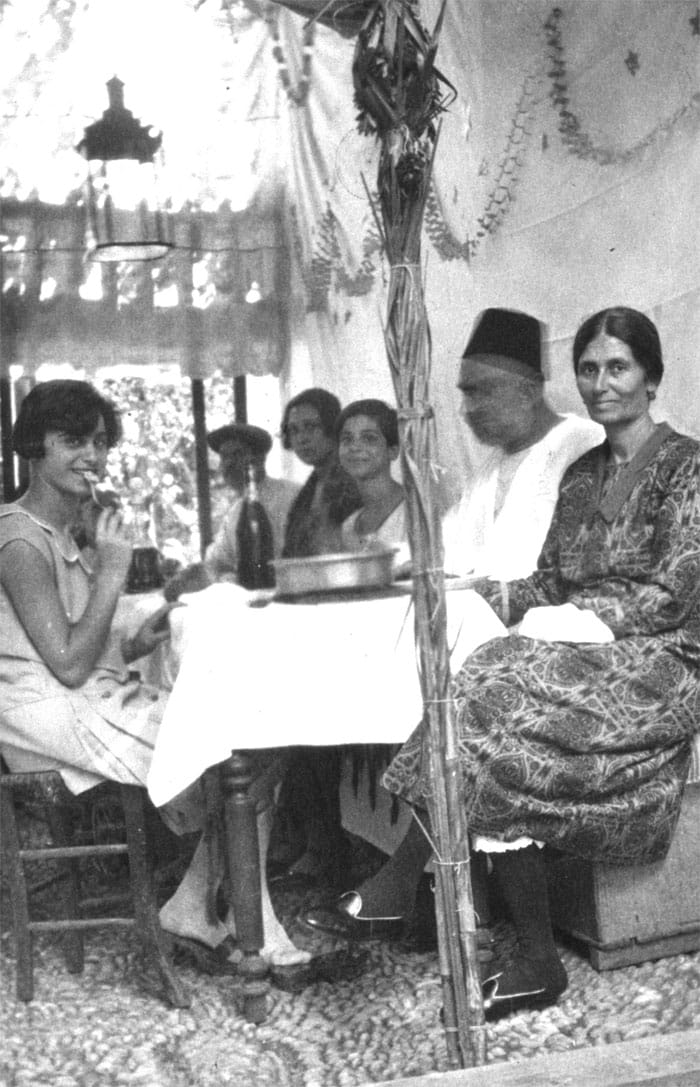
The Jewish community of Rhodes has a rich history and can be traced back to the Book of Maccabees. The medieval traveler Benjamin of Tudela gives a detailed account of the 400 Jews living on the small island of Rhodes in the 12th century. Following the Expulsion from Spain in 1492, the Jewish population grew because they were welcomed by the ruling Ottoman Empire. In 1943, the Nazi Germans seized control of Rhodes from the Italians. They soon deported the small remaining Jewish community to Auschwitz, where they exterminated 1,673 Jewish martyrs, with only 151 survivors. Today, there are only a handful of Jews living in Rhodes.
In 2007, Neil, our children and I visited Rhodes Kahal Shalom, the oldest synagogue in Greece. It sits in the Juderia, the Jewish quarter and is still used for prayer and worship. The former Women’s Section now houses the Jewish Museum of Rhodes. Established by Aron Hasson in 1997, this museums helps preserve the heritage of the community, a history that was almost lost. The Jewish women of Rhodes were renowned for their beautiful needlework and I am so proud that Neil’s family donated a few family heirlooms, including embroideries from his grandmother’s bridal trousseau, to the museum.
Rachel
Cheese Burekas
large russet potatoes
1/2 lb of feta cheese, crumbled
1 cup finely grated parmesan cheese
2 eggs
Boil the potatoes in a pot over medium heat until fork tender, 7-10 minutes.
Peel the potatoes and place in a mediumn bowl. Mash the potatoes and allow to cool.
Add the Feta and Parmesan cheeses and the egg. Mix all the ingredients together, and set aside.
Dough
1 cup ice cold water
3/4 cup avocado or vegetable oil
1 tsp kosher salt
3 cups all purpose unbleached flour
1 egg, beaten for egg wash
Finely grated Parmesan cheese
Use a standing mixer with the dough hook and slowly mix the water, the oil, salt and flour until the dough comes together, about 3 minutes.
On a lightly floured surface, gently knead the dough.
Form the dough into walnut-size balls and place on a parchment lined baking tray.
Cover the balls with a clean dish towel and allow to rest for 30 minutes.
Preheat the oven to 350°F.
Use a rolling pin to form the dough into long oval shapes.
Place one teaspoon of potato and cheese filling at the bottom of the dough.
Lift the dough and roll upwards. Then pinch the ends and bring in to form a crescent shape.
Brush the tops of the burekas with a beaten egg.
Sprinkle with Parmesan cheese .
Bake for 20-25 minutes until crispy and golden brown.
Israeli Salad with Eggplant and Pickles
2 large Japanese eggplants, sliced into 1/2 inch thick round pieces
Kosher salt
1/2 cup avocado or vegetable oil, divided
Place eggplant in a colander and sprinkle kosher salt over eggplant. Allow to drain for an hour.
Preheat oven to 400°F.
Arrange parchment paper on a baking sheet and grease with 1/4 cup oil.
Pat eggplant with paper towel and lay on the baking sheet. Drizzle with remaining oil.
Bake for 10-15 minutes until golden brown, then set aside to cool.
10 ounces cherry and kumato tomatoes, halved
1 red pepper, finely diced
3 medium Persian cucumbers, finely diced
4 medium Israeli pickles, finely diced
1 small white or red onion, finely diced
1 small bunch Italian parsley, finely chopped
1 large lemon, juiced
1/3 cup extra virgin olive oil
Kosher salt, to taste
In a large salad bowl, combine the eggplant, tomatoes, pepper, cucumbers, pickles, onion and parsley.
Dress with lemon juice, olive oil and salt just before serving.
Rachel Sheff and Sharon Gomperts have been friends since high school. They love cooking and sharing recipes. They have collaborated on Sephardic Educational Center projects and community cooking classes. Follow them on Instagram @sephardicspicegirls and on Facebook at Sephardic Spice SEC Food.


